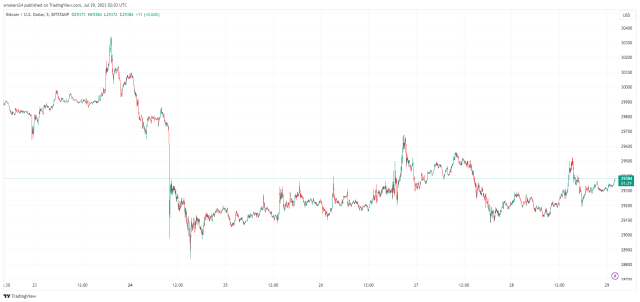In a move to address growing concerns over money laundering and terrorist financing associated with cryptocurrencies, the Presidency of Peru has issued a new decree. The decree mandates that all cryptocurrency exchanges operating within the country must comply with anti-money laundering (AML) regulations. This development marks a significant step in the Peruvian government’s efforts to regulate the cryptocurrency ecosystem and safeguard its financial system from illicit activities.
Related Reading: Crypto.com Pushes Ahead Of Binance With Registration Approval In The Netherlands
Mandatory Disclosure Of Crypto Holdings For Service Providers
According to the decree, virtual asset service providers, which include both individuals and companies operating within Peru, are now required to report information to the Financial Intelligence Unit (UIF-Peru). The UIF-Peru is responsible for receiving, analyzing, and transmitting information for the detection of money laundering and terrorism financing activities.
The definition of “Virtual Asset Service Providers” includes entities engaged in various cryptocurrency-related activities such as exchanging virtual assets for fiat or legal tender currencies, exchanging different forms of virtual assets, transferring virtual assets, providing custody and administration of virtual assets, and offering financial services related to the sale or offer of virtual assets.
Related Reading: Bitcoin And Crypto: US House Committee Passes Bill To Protect Self-Custody
One of the primary objectives of this decree is to ensure that cryptocurrency exchanges in Peru adhere to the recommendations set forth by the Financial Action Task Force (FATF). The FATF’s “travel rule” is particularly emphasized, which requires exchanges to implement Know Your Customer (KYC) standards. By collecting and sharing customer data, exchanges aim to enhance transparency and prevent illicit activities within the crypto space.
While the decree is now in effect, the Financial Intelligence Unit is expected to release more specific guidelines in the coming days regarding the prevention of money laundering and terrorism financing for cryptocurrency exchanges in Peru. These guidelines are likely to further clarify the obligations and responsibilities of virtual asset service providers operating within the Andean country.
New Regulations Not Without Controversy
Despite the government’s intention to address the risks associated with cryptocurrencies, the new decree has not been without controversy. The Blockchain & DLT Association of Peru (ABPE), a community comprising professionals and enthusiasts advocating for the adoption of bitcoin and blockchain technology, has expressed dissatisfaction. They claim that the proposal was drafted without their involvement and consultation with the broader Peruvian community. In response to this exclusion, the ABPE is urging Congress to initiate a dialogue with representatives from the cryptocurrency ecosystem to ensure that all perspectives are considered in the regulatory process.

As the use of cryptocurrencies continues to gain traction worldwide, many countries are grappling with the challenges posed by their decentralized and pseudonymous nature. Peru’s decision to tighten regulations and include cryptocurrency exchanges under AML guidelines reflects the global trend of governments seeking to strike a balance between fostering innovation and safeguarding their financial systems.
It remains to be seen how these new regulations will shape the cryptocurrency landscape in Peru and how the industry stakeholders will respond to the government’s call for increased compliance. For now, the decree represents a significant step forward in Peru’s efforts to combat financial crimes and protect its economy from the potential risks associated with cryptocurrencies.
Featured image from iStock.com, chart from Tradingview



